Study the given pie chart and answer the question that follows.
Break-up (degree-wise) of the number of students in five schools (A, B, C, D and E) in a city.
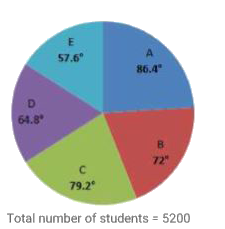
If the total number of students in schools D and E exceeds the number of students in school A by x, then x lies between:
475 and 500
550 and 575
525 and 550
500 and 525
The correct Answer is:D
Step by step video, text & image solution for Study the given pie chart and answer the question that follows. Break-up (degree-wise) of the number of students in five schools (A, B, C, D and E) in a city. If the total number of students in schools D and E exceeds the number of students in school A by x, then x lies between: by Maths experts to help you in doubts & scoring excellent marks in Class 14 exams.
Similar Questions
Study the given pie chart and answer the question that follows
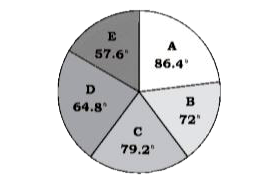
If the total number of students in schools D and E exceeds the number of students in school by x, then x lies betweenView Solution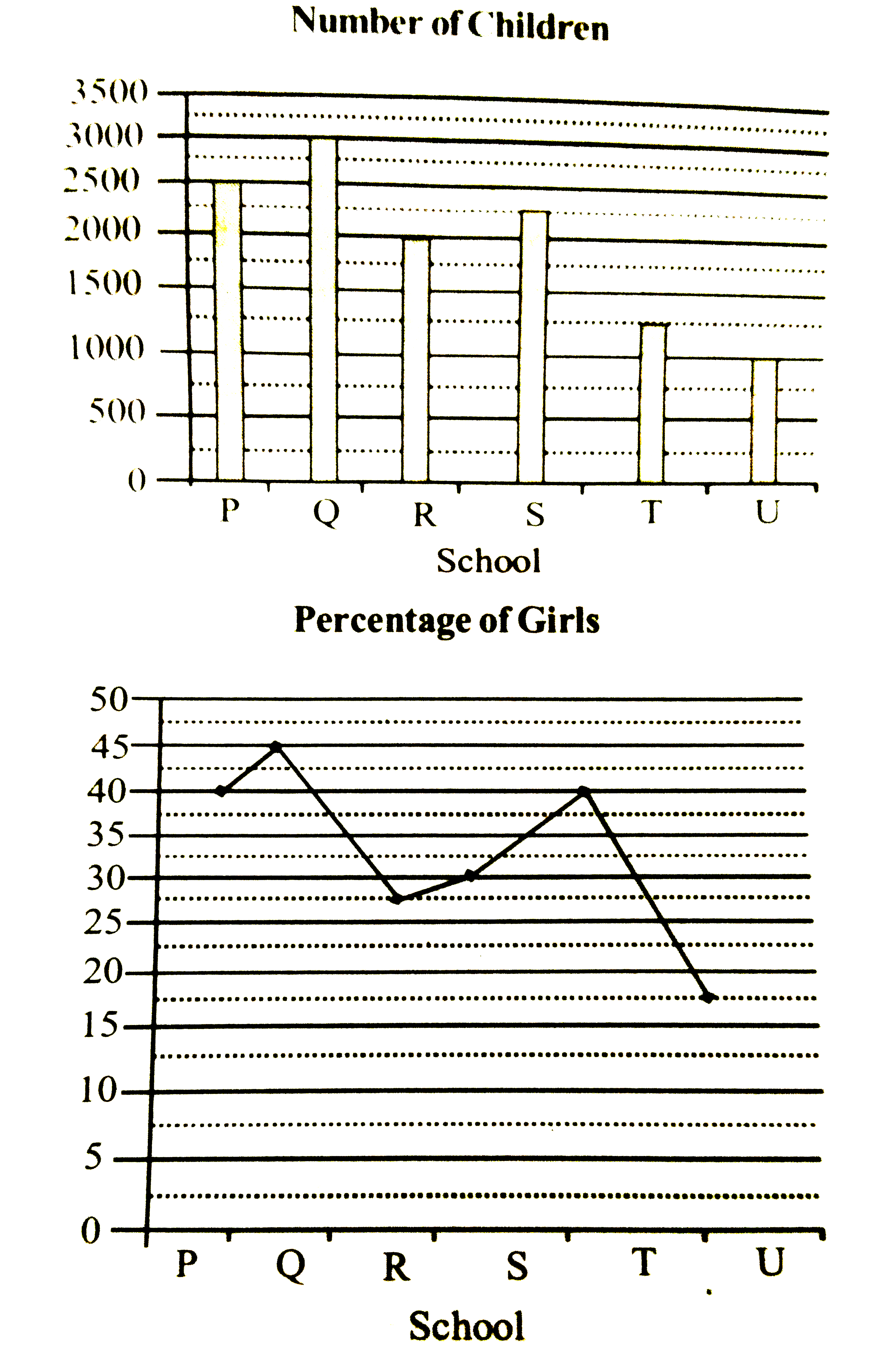
The total number of student in school R, is approximately what percent of the total number of student in school S?View Solution
Knowledge Check
- Question 1 - Select One
Study the given pie chart and answer the question that follows.
Break-up of the students studying in schools A,B,C,D and E managed by a society, in 2019
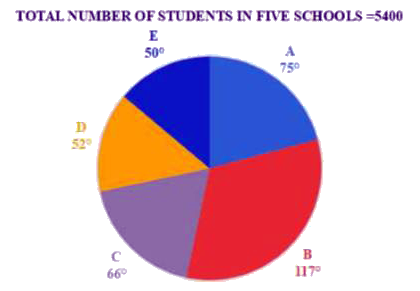
The average number of students in schools A,B and C is what percentage more than the number of students in school E ?A65%B60%C72%D70% - Question 2 - Select One
Study the given pie chart and ansewr the question that follows .
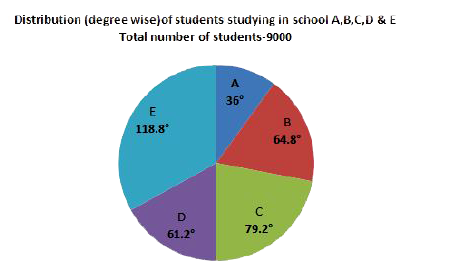
The number of students in school E exceeds the total number of students in schools A and B by x, where x lies between :A420 and 440B400 and 420C440 and 460D460 and 480 - Question 3 - Select One
Study the following graph carefully and answer the questions that follow
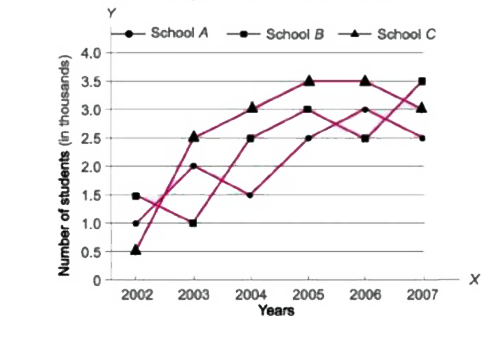
What was the difference between the total number of students in all schools together in the year 2003 and the number of students in school B in the year 2005 ?A2000B3000C3500D2500
Study the given pie chart and answer the question that follows
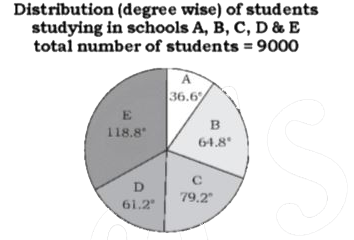
The total number of students in schools D and E is what percentage more than the number of students in schools B and C?View SolutionStudy the given pie chart and answer the question that follows
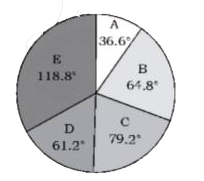
IF the ratio of the number of boys to that of girls in school C is 6:5 and that in school B is 7:11 then what is the ratio of the number of boys in school C to the number of girls in school BView SolutionThe following pie-chart shows the percentage-wise distribution of the number of students in five different schools P, Q, R, S and T. The total number of students in all five schools together is 8400.
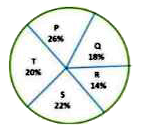
Find the average number of students in schools R and S together.View SolutionDirection: Read the following table carefully and answer the questions given below: The given table shows the number of boys and girls in 5 different school:
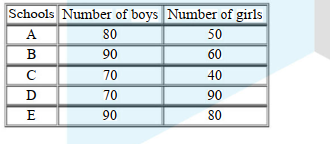
Find the ratio between the total number of students in school D and the total number of student in school A.View SolutionStudy the following graph carefully and answer the questions that follow
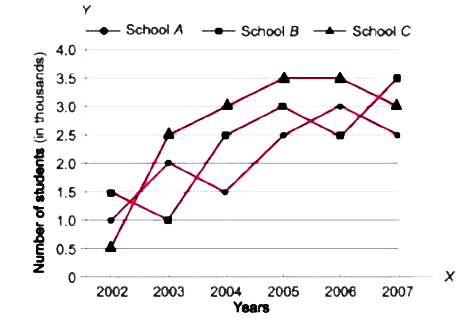
What was the average number of students in all schools together in the year 2006 ?View Solution

